When your baby is diagnosed with cow’s milk protein allergy, a mother will be advised to cut out milk from their diet (go dairy free), if breast feeding, or your child will be prescribed an appropriate infant formula. So breastfeeding mothers might be wondering what milk free (dairy free) alternatives to choose. Or parents might be wondering what alternatives are available once a baby starts weaning.
Other animal milks such as goat or sheep’s milk are NOT recommended alternatives to cow’s milk in cow’s milk protein allergy (CMPA). The proteins in other animal milks usually cause the same allergic reactions due their similarities.
When to give
Breastfeeding mothers can choose any plant based (dairy free) alternatives that they wish to have. However, the fortification section below will still be useful to ensure optimal nutrition. For babies, plant based milks are usually recommended as an alternative after 6 months of age IN FOOD . You might want to use it in home cooked family meals such as mash or cheese sauce. Babies can have plant based milk as a drink after 12 months of age, providing the weaning diet is nutritionally adequate.
Other plant based milk alternatives such as yoghurts, cheese, butter and cream can be introduced into the weaning diet after 6 months of age. You won’t often find plant based products like these aimed at children like their cows milk versions. I’m talking petit filous, munch bunch, babybel, dairylea, etc. Standard plant based options are fine to give, providing your child is not allergic to any of the ingredients.
Fortification
Not all plant based alternatives are equal, fortification matters! Calcium is important for the healthy growth of bones and teeth. Iodine is important for the thyroid hormones involved in growth, metabolism and brain development. Animal milk products are a good source of these nutrients, and therefore cow’s milk allergy and modified diets can lead to deficiency of these. Calcium fortification isn’t mandatory leaving some plant based milk products with no or low levels of Calcium and Iodine. Calories, fat and protein are also important for healthy growth and the absorption of fat soluble vitamins, so it’s a good idea to compare these too.
What alternatives are there?
There are so many plant based options available. I would recommend having a look around your supermarket to see what options are they have. You can use the advice in this blog to help you select one. Be mindful though, that your child might not accept what you choose. It may take a few options to settle on one. Please ensure the one that you select doesn’t contain any other foods that your child is allergic to. Reading labels is key.
For more information on cow’s milk protein allergy, and details of how a dietitian can help you, vitist The British Dietetic Association website. If you would like to discuss any concerns you have with a registered paediatric dietitian, get in touch via my contact page.

